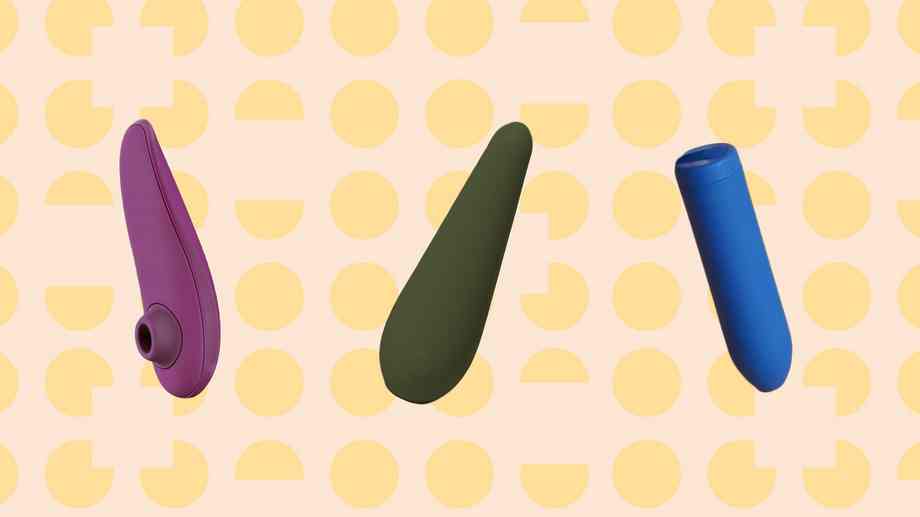While you go to your ob-gyn, there are some things you’ll be able to rely on: You’ll discuss your vagina, and he or she's going ask what the primary date of your final interval was. The interval query is sensible when you’re going to the physician since you’re pregnant otherwise you've been having irregular intervals, but it surely appears form of irrelevant in any other case. Seems, it’s truly not as random of a query as you may suppose.
“Nearly all the pieces we discuss revolves across the menstrual cycle,” says Maureen Whelihan, M.D., an ob-gyn on the Middle for Sexual Well being & Schooling. And realizing when your final menstrual cycle began helps with diagnostics, says Lauren Streicher, M.D., an affiliate professor of medical obstetrics and gynecology at Northwestern College Feinberg College of Medication and creator of Intercourse Rx: Hormones, Well being, and Your Finest Intercourse Ever. “The number-one purpose somebody is available in is that one thing is unsuitable with them,” she says. “So many potential diagnoses are depending on the place somebody is of their cycle.” And, after all, medical doctors do nonetheless wish to rule out that you just aren’t pregnant and work out whether or not you have got a daily cycle, says board-certified ob-gyn Pari Ghodsi, M.D.
Listed below are only a few instances when realizing the date of your final interval helps greater than you may understand:
You discovered a lump in your breast.
Naturally, that may make you freak out and assume that you’ve got breast most cancers, however the place you’re in your cycle will assist your physician work out how they need to reply. In case you are younger and also you discovered a bump, and it's three days earlier than your interval, Dr. Streicher says she’s much less nervous than when you simply completed your interval. “Many ladies will develop cysts and bumps proper earlier than their interval,” she says, including that she usually tells girls to return again after their interval for an additional verify (it’s normally passed by that time).
Your discharge appears to be like completely different.
You may not discover, however your discharge adjustments together with your cycle, says Dr. Whelihan. Within the first half of your cycle, there’s quite a lot of mucous, clear discharge; within the second half it’s extra white, milky, and thick, she says. Should you all of the sudden expertise thicker discharge to start with of your cycle, it might be an indication that one thing is off—but when it’s within the later half, it’s most likely nothing to fret about.
You’ve gotten recognizing.
Should you’re recognizing within the halfway level of your cycle, it may merely imply that you just’re ovulating. Some girls spot a bit after they ovulate as a result of a bit little bit of their uterine lining breaks down earlier than their interval, Dr. Streicher explains. However recognizing throughout a special time in your cycle may imply that you’ve got uterine fibroids, a polyp, or another situation that should get checked out. Both means, the interval query helps your physician know what they need to begin searching for.
You’re having vaginal ache.
There may be dozens of causes for this, which is why Dr. Streicher says the interval Q is so essential to assist docs ID the supply. If it occurs after you missed a interval, your physician might attempt to discover out whether or not you’re pregnant and what might be inflicting you ache. However when you’re not pregnant otherwise you didn’t miss a interval, it might be an indication of an ovarian cyst and even one thing that isn’t associated to your vagina in any respect. “So many ladies suppose the minute they’ve pelvic ache that it’s ovarian most cancers, but it surely might be IBS,” Dr. Streicher factors out. “There’s so much occurring within the pelvis that doesn’t apply to your gynecologist.“
You’ve been attempting to get pregnant, with no luck.
Understanding the place you’re in your cycle can let your physician allow you to plan for being pregnant makes an attempt, Dr. Whelihan says. Heads up: Your physician will most likely wish to know the primary date of your final six intervals, Dr. Streicher says, to allow them to work out how common you’re and the size of your cycle to assist time when it’s best to attempt to have intercourse.
So subsequent time you head to your ob-gyn, come ready to reply the interval query—it’s actually essential.
While you go to your ob-gyn, there are some things you’ll be able to rely on: You’ll discuss your vagina, and he or she's going ask what the primary date of your final interval was. The interval query is sensible when you’re going to the physician since you’re pregnant otherwise you've been having irregular intervals, but it surely appears form of irrelevant in any other case. Seems, it’s truly not as random of a query as you may suppose.
“Nearly all the pieces we discuss revolves across the menstrual cycle,” says Maureen Whelihan, M.D., an ob-gyn on the Middle for Sexual Well being & Schooling. And realizing when your final menstrual cycle began helps with diagnostics, says Lauren Streicher, M.D., an affiliate professor of medical obstetrics and gynecology at Northwestern College Feinberg College of Medication and creator of Intercourse Rx: Hormones, Well being, and Your Finest Intercourse Ever. “The number-one purpose somebody is available in is that one thing is unsuitable with them,” she says. “So many potential diagnoses are depending on the place somebody is of their cycle.” And, after all, medical doctors do nonetheless wish to rule out that you just aren’t pregnant and work out whether or not you have got a daily cycle, says board-certified ob-gyn Pari Ghodsi, M.D.
Listed below are only a few instances when realizing the date of your final interval helps greater than you may understand:
You discovered a lump in your breast.
Naturally, that may make you freak out and assume that you’ve got breast most cancers, however the place you’re in your cycle will assist your physician work out how they need to reply. In case you are younger and also you discovered a bump, and it's three days earlier than your interval, Dr. Streicher says she’s much less nervous than when you simply completed your interval. “Many ladies will develop cysts and bumps proper earlier than their interval,” she says, including that she usually tells girls to return again after their interval for an additional verify (it’s normally passed by that time).
Your discharge appears to be like completely different.
You may not discover, however your discharge adjustments together with your cycle, says Dr. Whelihan. Within the first half of your cycle, there’s quite a lot of mucous, clear discharge; within the second half it’s extra white, milky, and thick, she says. Should you all of the sudden expertise thicker discharge to start with of your cycle, it might be an indication that one thing is off—but when it’s within the later half, it’s most likely nothing to fret about.
You’ve gotten recognizing.
Should you’re recognizing within the halfway level of your cycle, it may merely imply that you just’re ovulating. Some girls spot a bit after they ovulate as a result of a bit little bit of their uterine lining breaks down earlier than their interval, Dr. Streicher explains. However recognizing throughout a special time in your cycle may imply that you’ve got uterine fibroids, a polyp, or another situation that should get checked out. Both means, the interval query helps your physician know what they need to begin searching for.
You’re having vaginal ache.
There may be dozens of causes for this, which is why Dr. Streicher says the interval Q is so essential to assist docs ID the supply. If it occurs after you missed a interval, your physician might attempt to discover out whether or not you’re pregnant and what might be inflicting you ache. However when you’re not pregnant otherwise you didn’t miss a interval, it might be an indication of an ovarian cyst and even one thing that isn’t associated to your vagina in any respect. “So many ladies suppose the minute they’ve pelvic ache that it’s ovarian most cancers, but it surely might be IBS,” Dr. Streicher factors out. “There’s so much occurring within the pelvis that doesn’t apply to your gynecologist.“
You’ve been attempting to get pregnant, with no luck.
Understanding the place you’re in your cycle can let your physician allow you to plan for being pregnant makes an attempt, Dr. Whelihan says. Heads up: Your physician will most likely wish to know the primary date of your final six intervals, Dr. Streicher says, to allow them to work out how common you’re and the size of your cycle to assist time when it’s best to attempt to have intercourse.
So subsequent time you head to your ob-gyn, come ready to reply the interval query—it’s actually essential.








